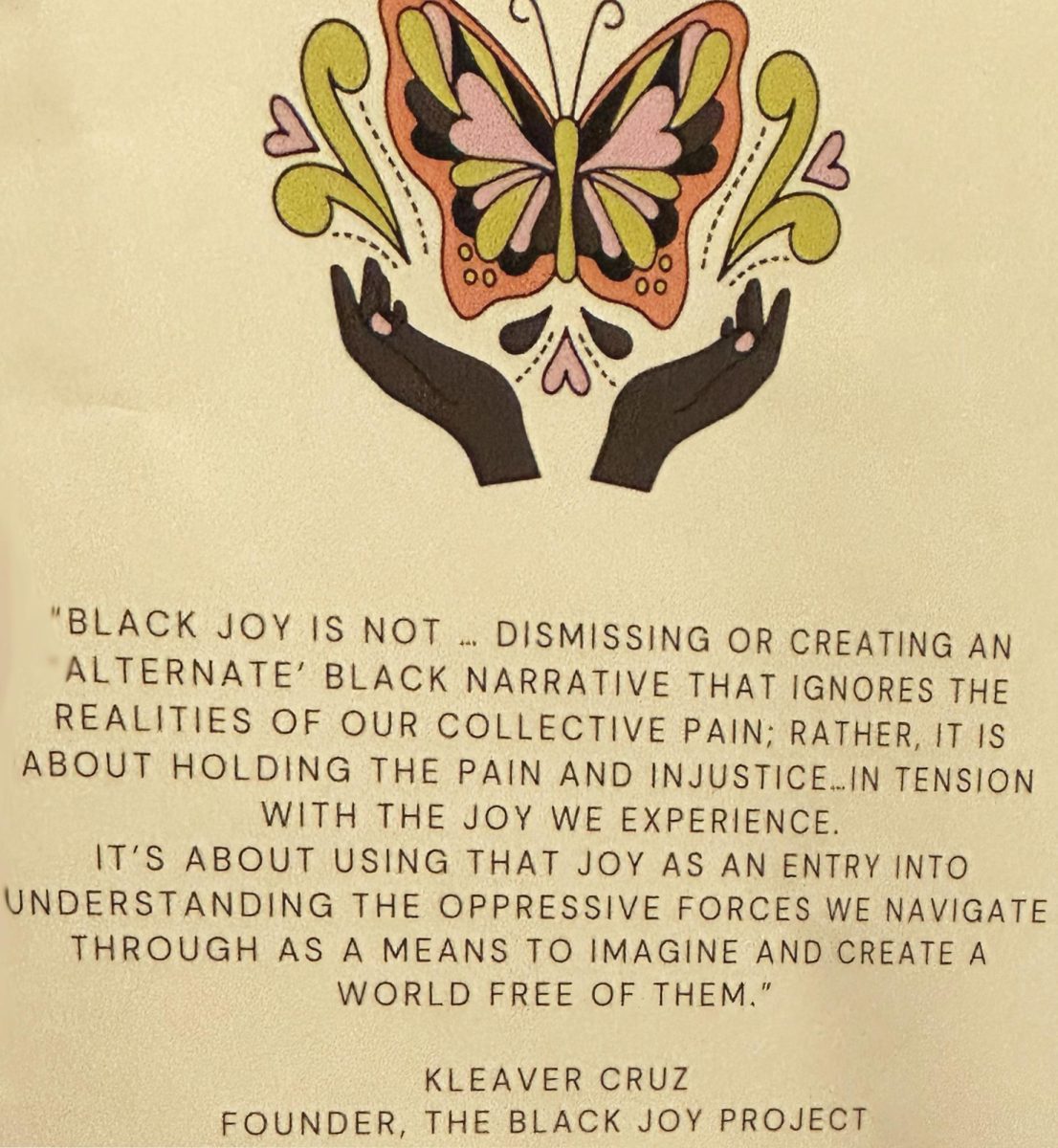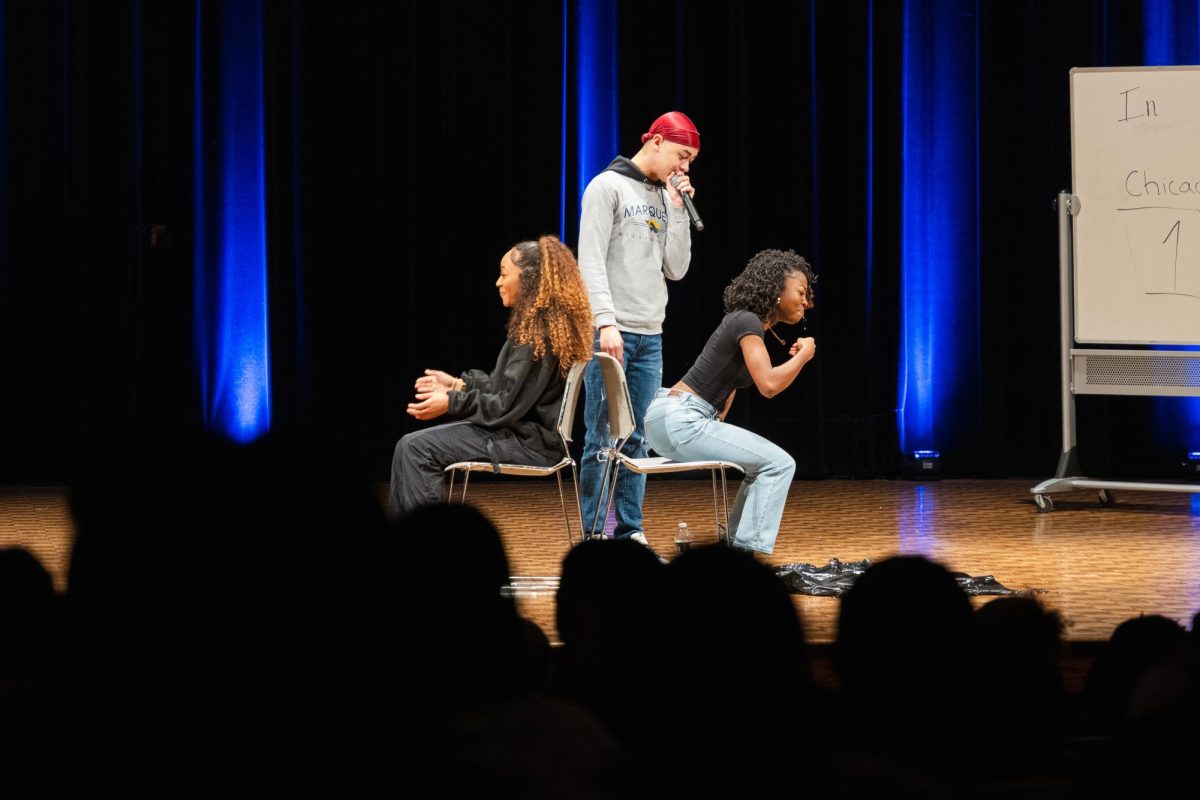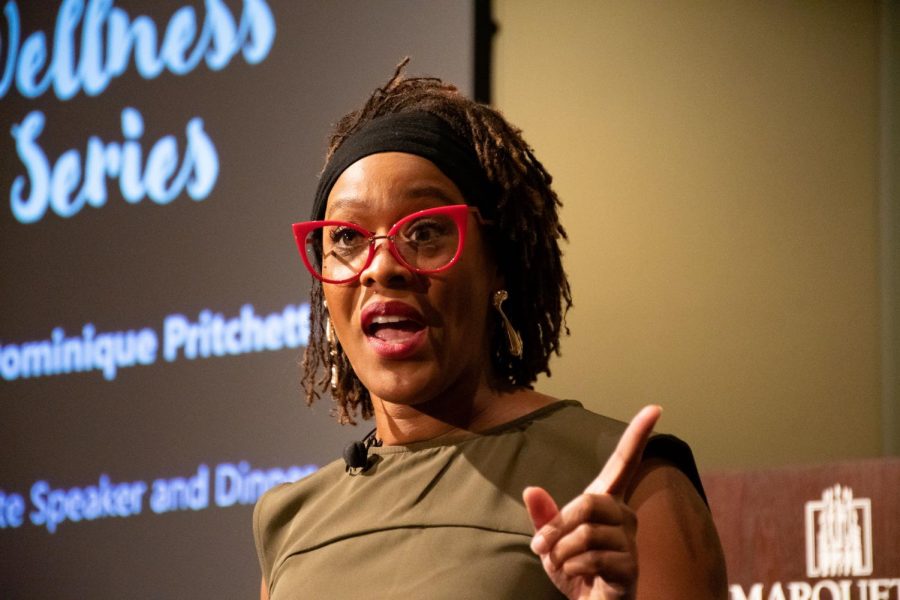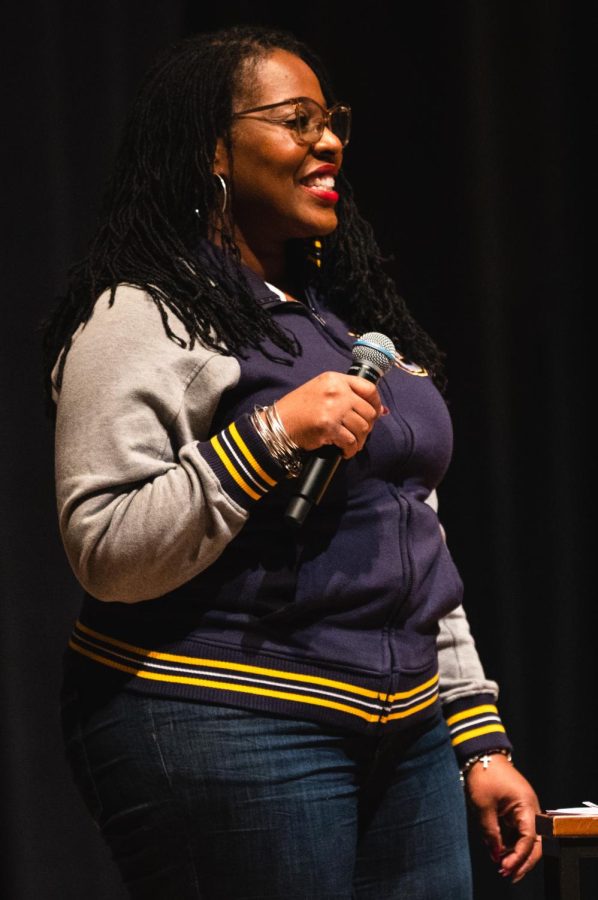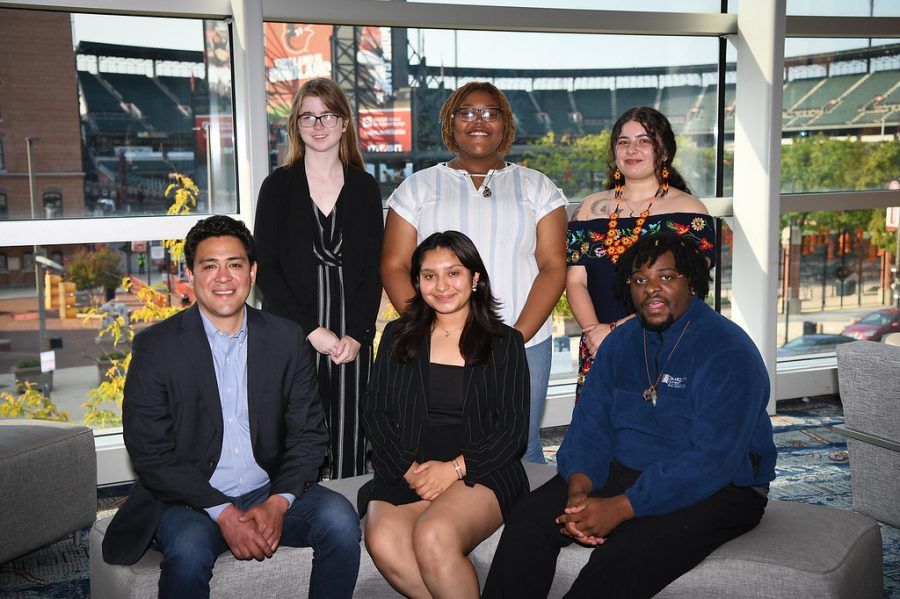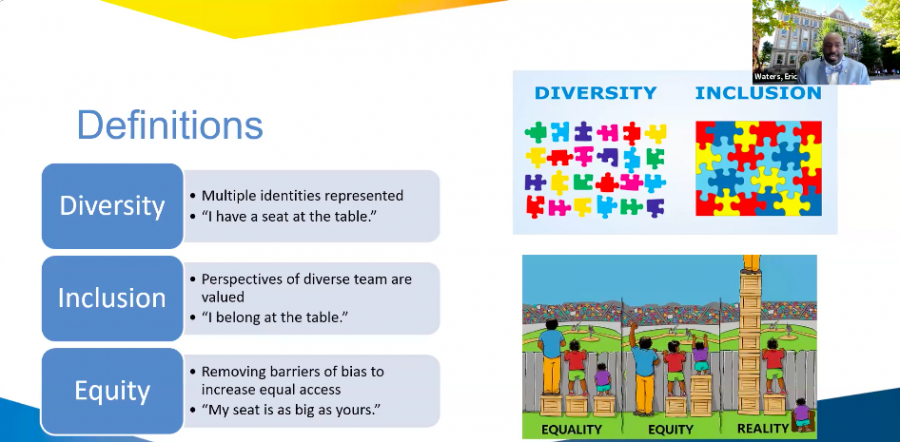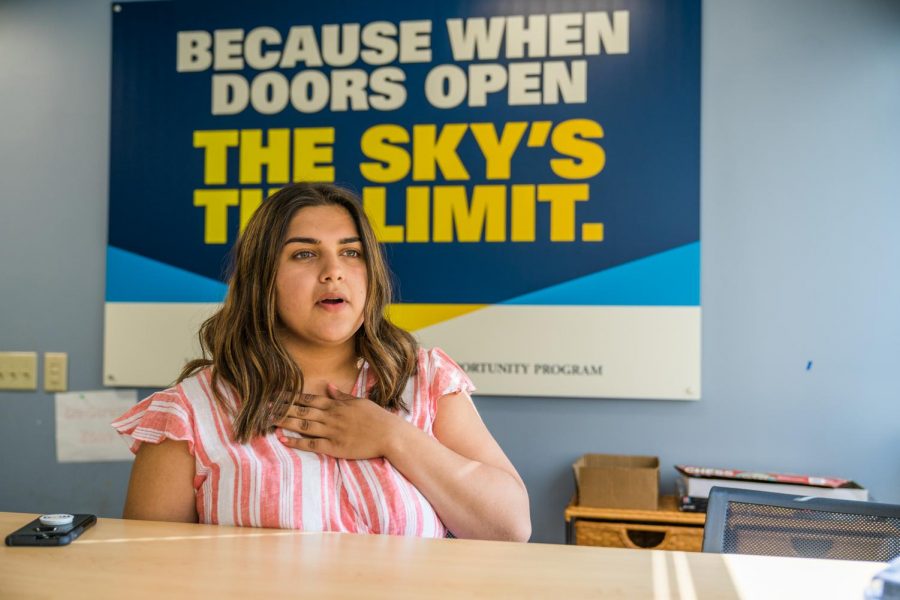Of the 2,002 freshman students on campus, 29.3 percent are students of color.
“At Marquette, students of color are, numbers-wise, in the minority,” Bianca Howell, the Coordinator for Intercultural Engagement, said. “There are times when you can go through a large chunk of your day or week and not see someone who looks like you.”
Friday, Feb. 3, the Office of Intercultural Engagement hosted the Malika Circle Reception in the Alumni Memorial Union Henke Lounge to bring women of color together and have a space to connect with one another.
“It’s not meant to be exclusionary, but it’s something different to acknowledge their presence on campus,” Ericka Brown, an Ethnic Alumni Association board member, said. “This allows women (of color) to socialize since we are so marginalized, to get to know each other and come together.”
Brown graduated from Marquette in 1997 and was president of the Black Student Council, an Educational Opportunity Program member and was in the Lambda Lambda chapter of Zeta Phi Beta. Alumni were invited to network with women in attendance.
“I think this event is important every month, every day of the year so that students of color have a place they belong,” Brown said. “This is a way for people to come together and talk about issues, whether they be positive or negative.”
Men to Men was the first group offered last year to bring male students of color together once a month and talk about their experiences or concerns. Latinas Unidas, created last fall, is centered around providing women who identify as indigenous and Latina the chance to speak with one another.
“There is not enough of our types here,” said Elijah Ikhumhen, a junior in the College of Health Sciences and president of the African Student Association. “Most of my classes, I’m the only black person in there. It doesn’t bother me, but it bothers some of my friends.”
Ikhumhen attends Men to Men and hopes more groups like it appear on campus.
The Malika Circle Reception was part of Black History Month and a test run for starting another group on campus for women of color.
“We were having a problem with the relatively low number of black women on campus to start the program,” Howell said. “So it was easier for us to start the first base and hold the space.”
Nica Assana, a junior in the College of Arts & Sciences, attended the event after receiving an email invitation from Howell.
“I think the school needs to offer more options of outlets for people to speak their minds,” Assana said. “People tend to be frustrated when they’re not being heard. Students of color, in general have that concern, but females almost have their own special concerns.”



